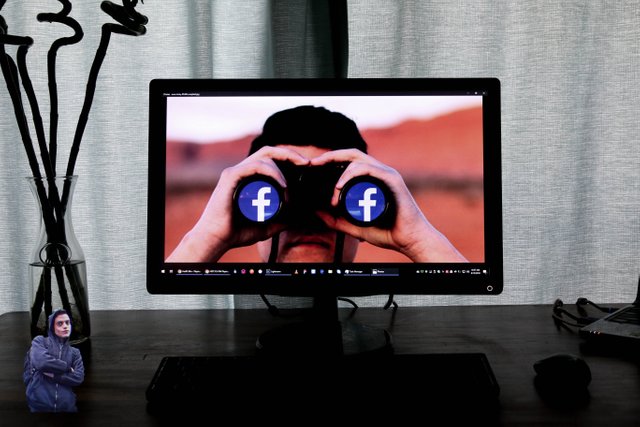// Privacy NEWS // Are Facebook and Google Listening to Us ?
Friends, who hasn't already had to deal with an advertisement, coming out of nowhere, proposing a product that has just been talked about in an off-screen conversation (telephone, direct chat, etc)?

This situation obviously puts us on the defensive, and makes us immediately ask ourselves the question: is google listening to us? (or facebook, or others?)
I dug into the subject and tried to add explanations, based on big data and artificial intelligence which, applied to the large amount of data that the giants of the net have, can be used to guess our needs, our behaviors, without even having to listen to us ...
(If you have a testimony to share with me, which could be used as proof (or counter-evidence) to this data processing, do not hesitate to write it down below !)
A lack of transparency at the root of the problem?
About 9% of Internet users read the terms of use and privacy policy of the services they use. This is a first thing, which makes us potentially ignorant of everything that is done with our data, by the fact that we had very simply given permission by a checkbox.
But there is another underlying problem: the transparency of the said terms of use. Are the processing operations indicated in full? Are changes in privacy policies systematically brought to our attention? Are treatments voluntarily hidden? Knowing that Internet giants can afford to pay fines in 7 figures or more, could they afford to "take the risk"?
What if Google and Facebook were fed by other sources?
The famous "share buttons" have become unavoidable on the Internet. Many sites use them. These same buttons allow the giant that controls them to put their eyes in the pages of any website that uses them. And by "pages", we mean "user activity".
Beyond these buttons, mobile (or PC) applications that use ads or statistics tools linked to the giants of the net, can also feed their databases with user activity.
Videos are also a key source of information, because what you watch says a lot about you. For example, you don't need to look for "dog food" to show your desire to buy. If you watch videos on this topic, you may qualify as a potential buyer. Youtube, for example, analyzes not only the content of the videos, but also the interest that the Internet user shows in the video. This is why the home page is fully customized to each profile.
Youtube listens to usBrowser extensions also allow their authors (and therefore potentially the GAFA) to see the sites visited by Internet users.
Data piracy is not to be ruled out. If a site possessing and processing your personal data gets hacked, they will probably be in even worse hands... Extrapolating this point, a hacker could very well be hired by a third party to steal data.
What if this is beneficial?
I'll allow myself to launch a debate to conclude. This debate is taking place in relation to the current situation, which in fact changes little despite the growing awareness. What if this tracking, unfortunately "without our knowledge" was in fact beneficial?
Beneficial, for example, in obtaining truly relevant content? Beneficial for example to obtain a much sought-after product (with a great promotion...!) ? Beneficial to discover content that we would never have discovered without profile analysis? Would this global data tracking improve our lives, at the risk of potentially losing our free will? What if the solution was in the strict separation of activity on the Internet? One for "public" use, the other for "private" use?

I've made a lot of articles with tools, explanations and advises to show you how to protect your privacy and to secure your computer, GO check them out!
This is my guide To Secure your PC after a fresh installation of Windows
If you think that your Phone or your PC has been hacked, you have to check it right now!
That's how you can be more Anonymous on the internet!
The Future of Cyber-Security, what to expect?
The best Crypto debit card – Wirex!
These are the best VPN to protect your numeric life: NordVPN, ExpressVPN and CyberGhost!
Your PC is slow? That's why!
Why is it important to Be Discreet on the Internet
What Do Tech Giants Know About You? A New Tool To Get An Idea!
Feel hot? Your Computer also!
How an Adware works?
That's how you should guard against Trojan!
What are the different Types of hackers?

Have a witness !BEER